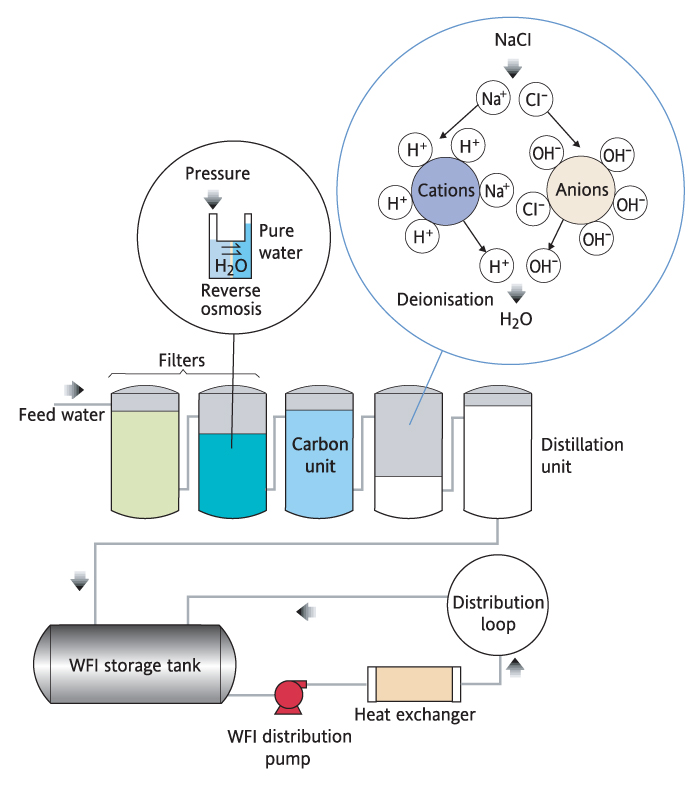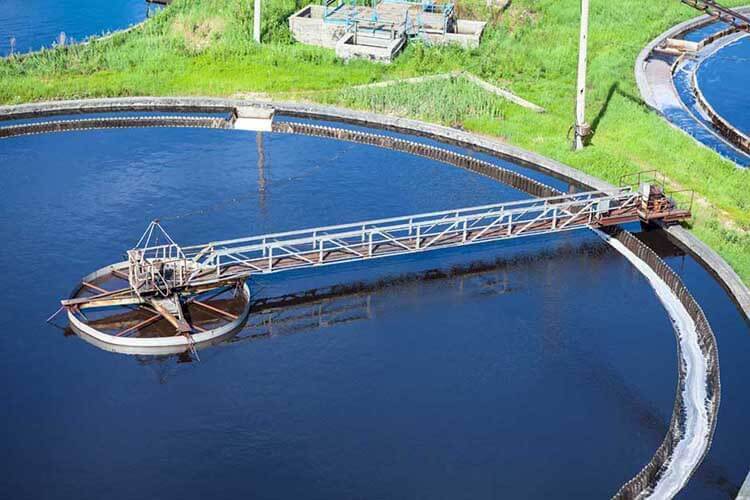Why Investors Are Turning to Water Technology Startups in 2025
Wiki Article
Exploring Water Technology Startups: Exactly How They Transform Lasting Solutions
Water Technology startups are arising as crucial gamers in the mission for sustainable solutions to worldwide water issues. These firms utilize cutting-edge innovations to boost water efficiency and management. Their contributions attend to pressing difficulties such as deficiency and contamination. Despite their capacity, they deal with various obstacles that might impact their success. Recognizing these dynamics sheds light on the future of water sustainability and the role these startups might play fit it.The Importance of Water Technology in Today's World
As international water shortage escalates, the significance of water Technology becomes significantly apparent. Water Technology plays a crucial role in attending to the challenges positioned by reducing freshwater resources and increasing demand. It includes a wide variety of innovations, including advanced filtration systems, wastewater therapy innovations, and wise irrigation solutions. These advancements not just enhance the effectiveness of water use but likewise promote sustainable techniques across various sectors, including agriculture, industry, and urban development.The relevance of water Technology extends past source management. It fosters resilience against environment adjustment effects, such as floods and dry spells, by providing adaptive services for water preservation and management. In addition, it sustains public health and wellness by making certain access to tidy and safe drinking water. As the globe faces expanding water-related challenges, the combination of cutting-edge water modern technologies is crucial for cultivating lasting advancement and securing water accessibility for future generations.
Innovative Solutions From Water Technology Startups
While standard methods to water monitoring have actually offered their purpose, a new wave of water technology startups is transforming the sector with innovative options (Water Technology Startups). These companies utilize sophisticated technologies to deal with pushing water concerns, such as shortage, contamination, and ineffective distribution. Several start-ups use expert system and equipment knowing to maximize water use and forecast need, resulting in even more sustainable techniquesFurthermore, numerous firms focus on developing innovative purification systems that get rid of pollutants and make water risk-free for consumption. Others discover decentralized water treatment modern technologies, allowing areas to manage their water sources better. Some start-ups are pioneering wise irrigation services that minimize water waste in agriculture, promoting ecological conservation.
Case Researches: Effective Water Technology Startups
Many water Technology startups have actually become leaders in attending to international water challenges through innovative approaches. One remarkable example is Xylem, which concentrates on water analytics and smart infrastructure to maximize water usage and decrease waste. Their remedies have actually been carried out in different districts, demonstrating considerable enhancements in water administration performance.One more successful startup, Absolutely no Mass Water, has established solar-powered hydropanels that remove water vapor from the air, supplying lasting alcohol consumption water in deserts. Water Technology Startups. This Technology has been released in several nations, ensuring areas have access to tidy water
AquaVenture Holdings runs a varied profile of water-as-a-service solutions, dealing with water shortage via desalination and wastewater therapy. Their jobs have actually confirmed vital in regions encountering serious water lacks, showcasing the possibility of innovative water technologies to produce enduring, favorable effects. These case studies highlight the transformative potential of startups in the water Technology industry.
The Role of Smart Technology in Water Management
Smart Technology plays an essential function in modern-day water administration by leveraging IoT applications to optimize resource use. Information analytics boosts efficiency by offering actionable insights, while remote tracking remedies enable real-time oversight of water supply. Together, these developments transform how water is managed, promoting sustainability and functional efficiency.IoT Applications in Water
As water shortage and management obstacles heighten around the world, the integration of Internet of Points (IoT) applications has become a crucial remedy in maximizing water sources. IoT Technology promotes real-time surveillance and analysis of water systems, allowing extra efficient usage and monitoring. Sensing units deployed in various water infrastructures can track high quality, flow prices, and leakage, providing valuable information to stakeholders. This information equips energies and customers to make educated choices, minimizing waste and enhancing preservation efforts. In addition, clever irrigation systems utilize IoT to optimize water delivery for farming, making sure that plants obtain the correct amount of water at the correct time. On the whole, IoT applications are changing conventional water monitoring practices, fostering sustainability and durability in water source systems.Information Analytics for Performance
Taking advantage of information analytics is vital for improving click for more efficiency in water administration. Water Technology startups are significantly making use of sophisticated analytics to enhance resource allowance and lower waste. By evaluating data from various sources, these start-ups can determine patterns and trends that inform far better decision-making. Predictive analytics can forecast water need, allowing energies to readjust supply accordingly, thereby lessening lacks and surpluses. In addition, real-time information processing enables the instant detection of leaks and ineffectiveness within distribution systems, greatly reducing operational costs. Furthermore, data-driven understandings encourage stakeholders more tips here to execute targeted conservation strategies, promoting sustainable methods. Basically, integrating information analytics into water monitoring not just simplifies operations but also promotes long-lasting sustainability in water resource use.Remote Monitoring Solutions
While traditional water administration systems typically fight with inefficiencies, remote surveillance solutions are changing just how water resources are managed. These innovative innovations make it possible for real-time information collection and analysis, allowing stakeholders to check water top quality, flow rates, and use patterns from afar. Using sensors and IoT devices, remote tracking offers immediate insights that help with positive decision-making. This shift not just enhances functional efficiency however also advertises sustainability by reducing water waste and optimizing resource allotment. In addition, remote monitoring systems can determine prospective problems before they escalate, thereby reducing the danger of contamination or facilities failure. As water Technology startups remain to establish these remedies, the industry is poised for substantial developments in sustainable water monitoring methods.Challenges Facing Water Technology Startups
Water Technology start-ups experience significant difficulties that can prevent their development and success. Secret problems include safeguarding appropriate financing, navigating via complicated governing environments, and completing in a congested market. These obstacles need tactical preparation and innovation to get rid of.Funding and Investment Hurdles
Although advancement in water Technology holds tremendous potential for dealing with international challenges, start-ups in this market commonly deal with considerable financing and investment obstacles. Several financiers remain careful, viewing the water industry as risky because of its complex governing landscape and long growth timelines. Additionally, start-ups frequently struggle to show instant productivity, which can discourage potential backers. Typical venture funding might ignore water technology, preferring industries with quicker returns, such as tech or consumer items. Moreover, protecting gives and federal government funding can be affordable and time-consuming, more complicating monetary stability. Water Technology Startups. Consequently, several cutting-edge water Technology startups find themselves in a ragged edge, requiring imaginative funding methods to browse these economic obstacles and attain their objectivesRegulative Conformity Issues
Steering regulatory compliance is a significant challenge for startups in the water Technology field, as they should face a myriad of regional, nationwide, and worldwide guidelines. These laws commonly include water high quality standards, ecological security regulations, and safety protocols, which can vary widely across territories. Startups might find it challenging to navigate this complicated landscape, specifically when scaling operations or entering brand-new markets. The expenses connected with conformity can be significant, drawing away sources far from innovation and product growth. Furthermore, hold-ups in obtaining required authorizations or qualifications can prevent development and market entry. Subsequently, a robust understanding of regulative frameworks is vital for these start-ups to assure sustainable procedures and stay clear of possible legal consequences.Market Competitors Dynamics
As water Technology startups emerge in a competitive landscape, they encounter various difficulties that can impede their development and development. Established business often control the marketplace, leveraging sources and experience to maintain their placements. Startups fight with minimal financing, which restricts r & d capacities, making it tough to compete on Technology and prices. In addition, the quickly developing nature of water technologies needs constant adaptation, more straining startup sources. Regulative obstacles can make complex market entrance, as conformity with ecological requirements is important yet pricey. Ultimately, attracting experienced ability in a specific niche field offers an additional challenge, as larger companies may use more enticing employment plans. These factors create an intricate setting for water Technology startups aiming to prosper.The Future of Water Technology and Sustainability

The future of water Technology will likely concentrate on integrating man-made intelligence and information analytics to enhance water circulation and usage patterns. By taking advantage of real-time information, companies can predict lacks and manage sources better. In addition, sustainable techniques will certainly become a foundation of the market, motivating round economic climates where water is reused and treated. Eventually, the continued development of water Technology will certainly be crucial in producing resistant infrastructures with the ability of satisfying the challenges positioned by environment adjustment and populace growth while advertising ecological stewardship.
Regularly Asked Inquiries
What Are the Secret Metrics for Reviewing Water Technology Startups?
Trick metrics for reviewing water Technology startups consist of market possibility, scalability, consumer purchase prices, revenue development, technology development, governing conformity, environmental effect, competitive benefit, and team know-how, all important for establishing long-term stability and success.How Can People Support Water Technology Innovations?
Individuals can support water Technology developments by purchasing startups, promoting for plan changes, taking part in area initiatives, sharing expertise regarding sustainable methods, and promoting understanding of water concerns via local events and social media.What Are Typical Financing Resources for Water Tech Startups?
Typical financing resources for water tech startups include financial backing, government grants, crowdfunding systems, angel capitalists, and company partnerships. These financial opportunities aid facilitate innovation and development in lasting water monitoring modern technologies.
Which Industries Benefit The Majority Of From Water Technology Advancements?
Industries such as farming, energy, production, and municipal services benefit significantly from water Technology advancements. These innovations boost water efficiency, lower costs, and promote sustainable practices, ultimately adding to ecological conservation and resource administration.Exist Any Kind Of Governing Difficulties Specific to Water Modern Technology?
Yes, water Technology encounters regulative challenges, including conformity with environmental criteria, allowing processes, and varying local regulations. These intricacies can impede development and slow the implementation of new innovations in the water monitoring field.Water Technology startups are arising as vital players in the quest for sustainable solutions to global water concerns. As international water shortage increases, the importance of water Technology becomes progressively noticeable. Others check out decentralized water treatment technologies, enabling areas to handle their water resources extra effectively. Another successful start-up, Zero Mass Water, has actually created solar-powered hydropanels that extract water vapor from the air, giving lasting drinking water in arid regions. Their tasks have confirmed essential in areas facing serious water scarcities, showcasing the possibility of innovative water innovations to develop long lasting, favorable influences.
Report this wiki page